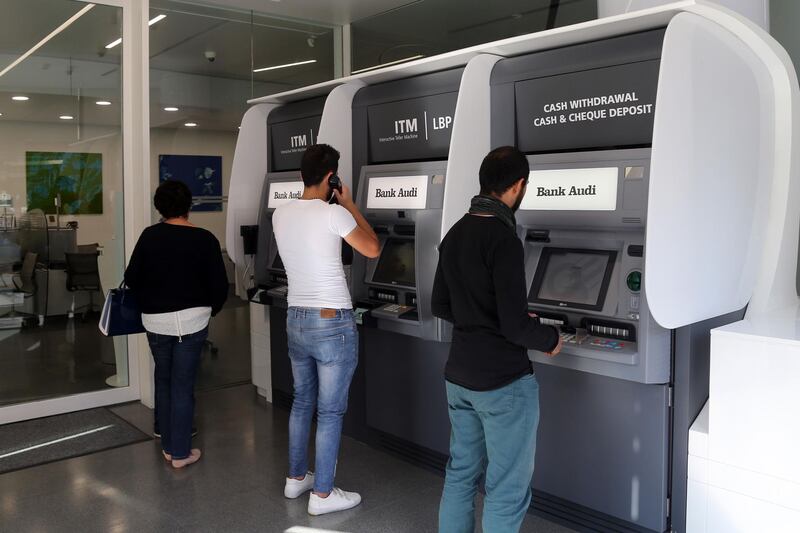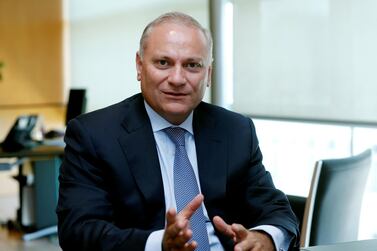Fitch Ratings cut the long-term default rating of two of Lebanon's largest lenders because of heightened liquidity risks the country's financial institutions face as a result of increasing political tensions that led to the resignation of Prime Minister Saad Hariri on Tuesday.
Bank Audi and Byblos Bank were downgraded to “CCC minus” from “CCC” with both lenders also placed on a negative rating watch, the agency said.
The decisions "reflect heightened liquidity risks … and are in view of increasing political tensions and social unrest in Lebanon", that other Lebanese banks are facing, Fitch said. "These events have caused a closure of domestic banks for operations since October 18. In our view, deposit stability is now at greater risk as depositor confidence has also suffered."
The negative rating watch indicates the probability of a further downgrade if potential funding stress materially affects the banks' liquidity profile. "We expect to resolve the [negative rating watch] in the near term depending on the evolution of the banks' funding and liquidity position in the current stressful operating environment," Fitch said.
Lebanon has been gripped by widespread protests for the past two weeks demanding an end to nepotism and corruption that have led the country's public debt to soar to $86 billion, or equivalent to 150 per cent of gross domestic product, one of the highest in the world. Lack of political consensus on what reforms to implement in the national unity government led Mr Hariri to resign.
According to Fitch estimates, about 88 per cent of Bank Audi's deposits and 69 per cent of the same at Byblos Bank were in foreign currency at the end of the first half of this year, which increases the vulnerability of the lenders to unexpected outflows.
“Access to foreign currency in the market is stretched and … the foreign currency-liquidity management [of lenders] is largely dependent on the central bank’s ability to meet foreign currency obligations,” Fitch said. “While we see a risk that access to [the lenders’] assets with the central bank could become restricted at times of stress.”
The agency said it viewed the asset quality and capitalisation of both banks as weak due to their "substantial exposures to the central bank and the Lebanese sovereign". It said the profitability of both banks could come under further pressure from a higher cost of funding, as well as steeper impairment charges despite the "current resilient loan quality" of both banks.
Given the very high direct exposure of both banks to Lebanon, a further downgrade of the country’s sovereign rating could also lead to a downgrade of the lenders’ ratings, the agency said.
Lebanon’s economic growth is projected to slow to 0.2 per cent this year, from about 0.3 per cent in 2018, according to the International Monetary Fund. Prior to Mr Hariri’s resignation, the fund said it was assessing an emergency economic reform package unveiled by the Lebanese government that sought to tax banks and cut pay of officials, in an attempt to avert a financial crisis.
The emergency plan, announced by Mr Hariri on October 21, proposed a 2020 budget that targets a fiscal deficit of 0.6 per cent of GDP.
Most of Lebanon’s sovereign debt is held by local banks and the financial system, which underpins the economy, attracted billions of dollars in capital flows that helped the country service its fiscal and external deficits since the end of a 15 year civil war in 1990.
Consumer and investor confidence in Lebanon have sunk as the economy systematically decelerated since the outbreak of war in neighbouring Syria in 2011 and deposit growth turned negative in the first half of the year.
Lebanon's pound, pegged to the US dollar since 1997, has been under pressure over the past three months as the economic crisis in the country worsens and demand for foreign currency increases. Though Lebanon's Banque du Liban's governor Riad Salameh told Reuters this week no capital controls will be imposed, the longer the banks remain closed, the greater the risk of a run on lenders by depositors when they open.








